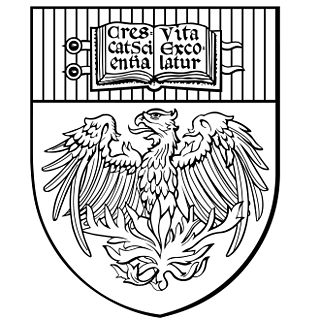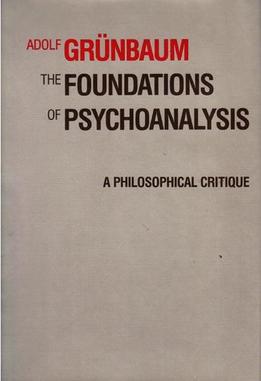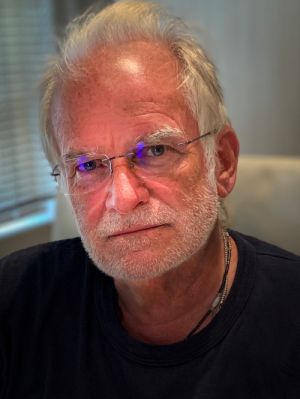Related Research Articles

Jacques Marie Émile Lacan was a French psychoanalyst and psychiatrist. Described as "the most controversial psycho-analyst since Freud", Lacan gave yearly seminars in Paris, from 1953 to 1981, and published papers that were later collected in the book Écrits. Transcriptions of his seminars, given between 1954 and 1976, were also published. His work made a significant impact on continental philosophy and cultural theory in areas such as post-structuralism, critical theory, feminist theory and film theory, as well as on the practice of psychoanalysis itself.
Psychoanalysis is a set of theories and therapeutic techniques that deal in part with the unconscious mind, and which together form a method of treatment for mental disorders. The discipline was established in the early 1890s by Sigmund Freud, whose work stemmed partly from the clinical work of Josef Breuer and others. Freud developed and refined the theory and practice of psychoanalysis until his death in 1939. In an encyclopedic article, he identified the cornerstones of psychoanalysis as "the assumption that there are unconscious mental processes, the recognition of the theory of repression and resistance, the appreciation of the importance of sexuality and of the Oedipus complex." Freud's colleagues Alfred Adler and Carl Gustav Jung developed offshoots of psychoanalysis which they called individual psychology (Adler) and analytical psychology (Jung), although Freud himself wrote a number of criticisms of them and emphatically denied that they were forms of psychoanalysis. Psychoanalysis was later developed in different directions by neo-Freudian thinkers, such as Erich Fromm, Karen Horney, and Harry Stack Sullivan.

Sigmund Freud was an Austrian neurologist and the founder of psychoanalysis, a clinical method for evaluating and treating pathologies seen as originating from conflicts in the psyche, through dialogue between patient and psychoanalyst, and the distinctive theory of mind and human agency derived from it.

Alfred Ernest Jones was a Welsh neurologist and psychoanalyst. A lifelong friend and colleague of Sigmund Freud from their first meeting in 1908, he became his official biographer. Jones was the first English-speaking practitioner of psychoanalysis and became its leading exponent in the English-speaking world. As President of both the International Psychoanalytical Association and the British Psycho-Analytical Society in the 1920s and 1930s, Jones exercised a formative influence in the establishment of their organisations, institutions and publications.
Psychoanalytic theory is the theory of personality organization and the dynamics of personality development relating to the practice of psychoanalysis, a clinical method for treating psychopathology. First laid out by Sigmund Freud in the late 19th century, psychoanalytic theory has undergone many refinements since his work. The psychoanalytic theory came to full prominence in the last third of the twentieth century as part of the flow of critical discourse regarding psychological treatments after the 1960s, long after Freud's death in 1939. Freud had ceased his analysis of the brain and his physiological studies and shifted his focus to the study of the psyche, and on treatment using free association and the phenomena of transference. His study emphasized the recognition of childhood events that could influence the mental functioning of adults. His examination of the genetic and then the developmental aspects gave the psychoanalytic theory its characteristics. Starting with his publication of The Interpretation of Dreams in 1899, his theories began to gain prominence.

Janet Opal Asimov, usually written as J. O. Jeppson, was an American science fiction writer, psychiatrist, and psychoanalyst.
Free association is the expression of the content of consciousness without censorship as an aid in gaining access to unconscious processes. The technique is used in psychoanalysis which was originally devised by Sigmund Freud out of the hypnotic method of his mentor and colleague, Josef Breuer.

The University of Chicago Press is the largest and one of the oldest university presses in the United States. It is operated by the University of Chicago and publishes a wide range of academic titles, including The Chicago Manual of Style, numerous academic journals, and advanced monographs in the academic fields.
Relational psychoanalysis is a school of psychoanalysis in the United States that emphasizes the role of real and imagined relationships with others in mental disorder and psychotherapy. 'Relational psychoanalysis is a relatively new and evolving school of psychoanalytic thought considered by its founders to represent a "paradigm shift" in psychoanalysis'.
Jean Laplanche was a French author, psychoanalyst and winemaker. Laplanche is best known for his work on psychosexual development and Sigmund Freud's seduction theory, and wrote more than a dozen books on psychoanalytic theory. The journal Radical Philosophy described him as "the most original and philosophically informed psychoanalytic theorist of his day."
Juliet Mitchell, Lady Goody is a British psychoanalyst, socialist feminist, research professor and author.
Freudo-Marxism is a loose designation for philosophical perspectives informed by both the Marxist philosophy of Karl Marx and the psychoanalytic theory of Sigmund Freud. Its history within continental philosophy began in the 1920s and 1930s and running since through critical theory, Lacanian psychoanalysis, and post-structuralism.
Adolf Grünbaum was a German-American philosopher of science and a critic of psychoanalysis, as well as Karl Popper's philosophy of science. He was the first Andrew Mellon Professor of Philosophy at the University of Pittsburgh from 1960 until his death, and also served as co-chairman of its Center for Philosophy of Science, research professor of psychiatry, and primary research professor in the department of history and philosophy of science. His works include Philosophical Problems of Space and Time (1963), The Foundations of Psychoanalysis (1984), and Validation in the Clinical Theory of Psychoanalysis (1993).
Robert Maxwell Young was an American-born historian of science specialising in the 19th century and particularly Darwinian thought, a philosopher of the biological and human sciences, and a Kleinian psychotherapist.
Robert Douglas Hinshelwood is an English psychiatrist and academic. He is a Professor Emeritus of Psychoanalytic Studies at the University of Essex. He trained as a doctor and psychiatrist. He has taken an interest in the Therapeutic Community movement since 1974, and was founding editor of The International Journal of Therapeutic Communities, having edited, with Nick Manning, Therapeutic Communities: Reflections and Progress.

Mark Solms is a South African psychoanalyst and neuropsychologist, who is known for his discovery of the brain mechanisms of dreaming and his use of psychoanalytic methods in contemporary neuroscience. He holds the Chair of Neuropsychology at the University of Cape Town and Groote Schuur Hospital and is the President of the South African Psychoanalytical Association. He is also Research Chair of the International Psychoanalytical Association.

Knowledge and Human Interests is a 1968 book by the German philosopher Jürgen Habermas, in which the author discusses the development of the modern natural and human sciences. He criticizes Sigmund Freud, arguing that psychoanalysis is a branch of the humanities rather than a science, and provides a critique of the philosopher Friedrich Nietzsche.
Christopher Bollas is a British psychoanalyst and writer. He is a leading figure in contemporary psychoanalytic theory.

The Foundations of Psychoanalysis: A Philosophical Critique is a 1984 book by the philosopher Adolf Grünbaum, in which the author offers a philosophical critique of the work of Sigmund Freud, the founder of psychoanalysis. The book was first published in the United States by the University of California Press. Grünbaum evaluates the status of psychoanalysis as a natural science, criticizes the method of free association and Freud's theory of dreams, and discusses the psychoanalytic theory of paranoia. He argues that Freud, in his efforts to defend psychoanalysis as a method of clinical investigation, employed an argument that Grünbaum refers to as the "Tally Argument"; according to Grünbaum, it rests on the premises that only psychoanalysis can provide patients with correct insight into the unconscious pathogens of their psychoneuroses and that such insight is necessary for successful treatment of neurotic patients. Grünbaum argues that the argument suffers from major problems. Grünbaum also criticizes the views of psychoanalysis put forward by other philosophers, including the hermeneutic interpretations propounded by Jürgen Habermas and Paul Ricœur, as well as Karl Popper's position that psychoanalytic propositions cannot be disconfirmed and that psychoanalysis is therefore a pseudoscience.

Barnaby B. Barratt is a radical psychoanalyst, specialist in human sexuality, somatic psychologist, human rights activist and practitioner of meditation in the Dharmic traditions of tantra. He has lived in England, India, USA and Thailand and he currently lives and practices in Johannesburg, South Africa. He is Director of Studies at the Parkmore Institute.
References
- ↑ Distributors
- ↑ "Editorial". Radical Science / Free Associations (15): 5–7. October 1984. ISBN 0-946960-11-9.
This article needs additional citations for verification .(February 2009) |